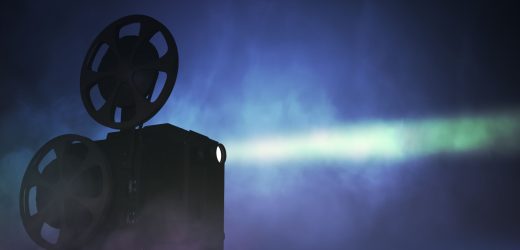If you teach, you know
about learning outcomes. Unless you inherited your courses from someone else, you’ve
developed lists of them. You’ve probably had to submit these lists to the
administration to be reviewed and possibly revised. You might have been asked
to map these outcomes against your department’s or institution’s broader
learning objectives. And you’ve definitely assessed your students against them.
There’s a fair bit of work involved with learning outcomes, and justifiably so.
They help ensure that we’re on the right track in fostering our students’
intellectual, emotional, and in some cases spiritual growth. We need them.
But why limit ourselves to student learning outcomes only?
Anyone reading this article probably bases their teaching on learner-centeredness and may even aspire to create a transformative learning environment in their classroom. Both approaches, learner-centered and transformative, require us to shuttle between various roles: the lecturer, who leads students; the facilitator, who guides them; and perhaps most importantly, the collaborator, who learns from and with them. In other words, the teaching and learning principles so many of us embrace call upon us to be learners.
Restricting learning outcomes to students suggests we’re turning a deaf ear to that call. It sends an implicit message that our classrooms consist of two groups, each with fixed roles: those who teach and those who learn. It ignores, in other words, a whole legacy of educational thought, from Freire to Palmer to Weimer, that states the contrary: the best teachers have the humility and the courage to acknowledge that they are learners too.
In the spirit of that
acknowledgment, I’ve started developing my own list of instructor learning
outcomes. Here’s what I’ve come up with so far:
By the end of this course, I, the instructor, will be able to
- accept with grace that everything has the potential to evolve into something better, including classes that don’t unfold as planned and students who don’t seem interested;
- enjoy developing and delivering each class, even if doing so requires leaning on the adage “fake it until you make it”; and
- demonstrate regularly to my students and my teaching colleagues genuine enthusiasm for the privilege of being a teacher-learner.
If you’re familiar
with Eckhart Tolle’s (2005) work, you may notice that my list is structured
around his three modalities of “awakened doing,” a precept that asks us to be in a state of
acceptance, enjoyment, or enthusiasm while undertaking any task. That’s just my
preference. The list could be structured in any number of ways. You might also
have noticed that the three outcomes I’ve identified so far revolve around one
theme: meaningful engagement with my classes and my students. Again, that’s my
preference, suited to my particular learning needs. For example, my years of
classroom experience bring many benefits, but they also put me at risk of
falling into what Weimer (2012) refers to as “tired teaching.” My list addresses
that risk. Similarly, the increasing number of international students in my
classes brings advantages, but it also challenges my ability to establish a
cohesive classroom environment. My first learning outcome alludes to that
challenge.
None of these learning outcomes should be confused with statements used in semester-end student evaluation forms. Those statements, such as “The instructor conveyed course content clearly” and “The instructor graded fairly,” allow students to assess what the instructor has already done. By contrast, instructor learning outcomes identify what the instructor aims to work on during the course (and perhaps beyond it). Moreover, while student evaluation statements may be modified to a limited extent to fit a given course, largely they are a one-size-fits-all measuring instrument meant to apply to all faculty in a department or at an institution. Instructor learning outcomes, however, are highly personal. They are meant to be developed by the individual, prompting them to reflect on what they need to learn to become a better teacher. They’re not meant to be shared with anyone else.
And they’re just the
start of the process. For example, having identified my three learning
outcomes, I now need to figure out how to achieve them and how to assess my
progress. But I’m not daunted by the work to come, because the biggest
challenge is behind me: acknowledging that I
still have much to learn about teaching. A track record of strong student
evaluations and an articulate teaching philosophy do not exempt me from ongoing
learning, and the title “professor” does not confer automatic status as the all-knowing
one in the classroom.
These are humbling admissions that strip away some unspoken beliefs I had been carrying around and deliver me back to the starting place: I am a learner in the classroom. Perhaps my learning outcomes will help me know the value of that place for the first time in my teaching career (with apologies to T. S. Eliot).
References
Tolle, E. (2005). A new earth:
Awakening to your life’s purpose. New York, NY: Dutton.
Weimer, M. (2012, October 3). When teaching grows tired: A wake-up call for faculty [Blog post]. Retrieved from http://info.magnapubs.com/blog/articles/teaching-professor-blog/when-teaching-grows-tired-a-wake-up-call-for-faculty/
Joan Flaherty, MA, MSc, is an associate professor in the School of Hospitality, Food and Tourism Management at the University of Guelph and the faculty adviser to Hornblower, the school’s annual student magazine. She is also the author of The Counterintuitive Writer: A Writing Guide for Students . . . and for Others (Rock’s Mills Press, 2018). You can reach her at jflahert@uoguelph.ca.






